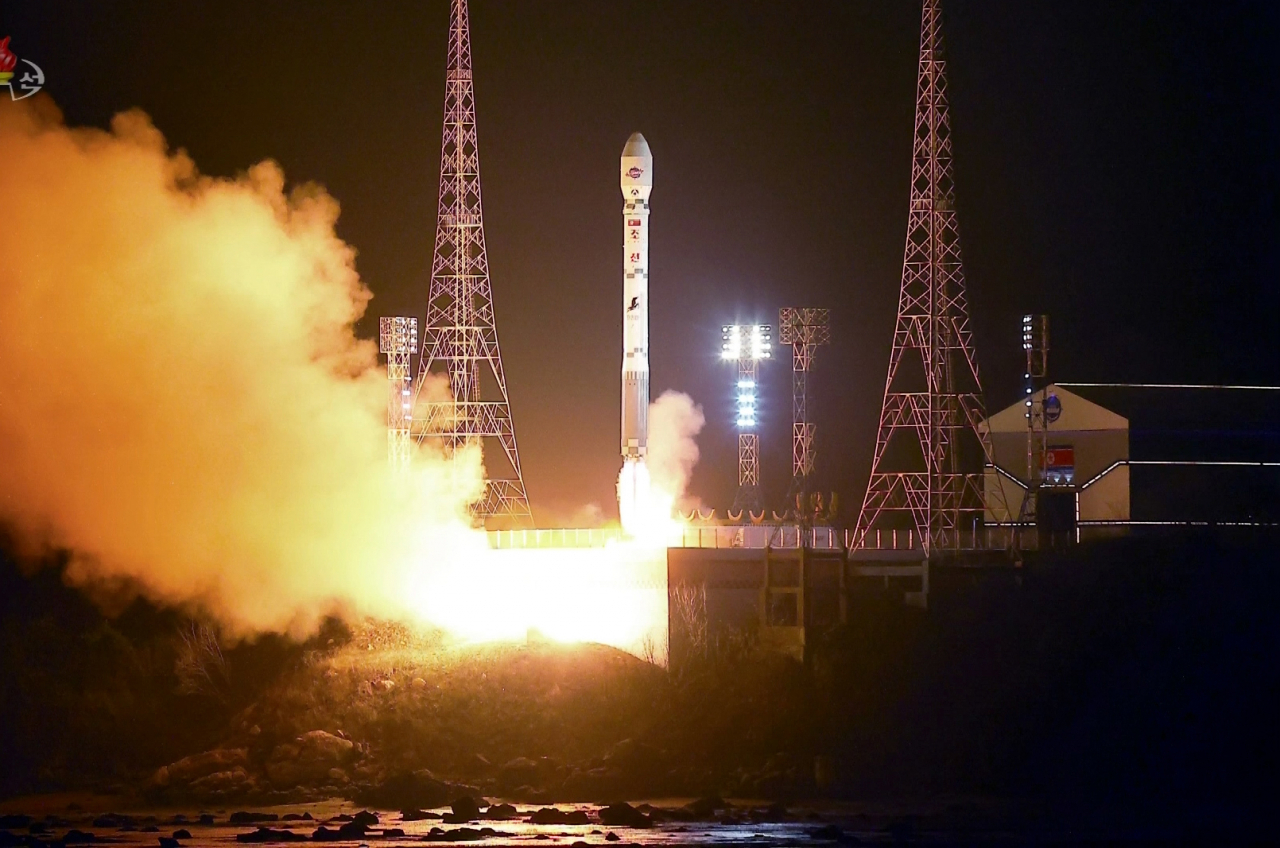 |
This photo on Nov. 22, shows the North launching a military spy satellite, called the Malligyong-1, on a new type of Chollima-1 rocket the previous day. (KCNA) |
The United States and Japan have agreed on the need to beef up deterrence amid an "increasingly challenging" security landscape marked by North Korea's repeated missile launches and its military cooperation with Russia, the State Department said Thursday.
The two sides shared the need during their bilateral Extended Deterrence Dialogue that took place in Japan from Tuesday to Thursday (local time). Extended deterrence refers to the US commitment to using the full range of its military capabilities to defend its ally.
"Both sides concurred that it is necessary to continue strengthening deterrence and response capabilities of the Japan-US alliance amidst an increasingly challenging regional security environment, which is illustrated by repeated launches of ballistic missiles by the DPRK and the enhanced military cooperation between Russia and the People's Republic of China as well as cooperation between Russia and the DPRK," the department said in a media note.
DPRK stands for North Korea's official name, the Democratic People's Republic of Korea.
The EDD followed Pyongyang's launch of a space rocket to put a military spy satellite into orbit last month. Seoul, Washington and Tokyo have condemned the launch as a violation of multiple UN Security Council resolutions banning any launch using ballistic missile technology.
During the talks, Japan said it would like to continue to enhance US extended deterrence, bolstered by Japan's capabilities. The US side emphasized the alliance's "steady" progress on "integrated deterrence," according to the department.
The two sides also discussed arms control and risk reduction approaches in response to nuclear risks that are becoming "increasingly challenging and complex" as diversification and expansion of regional actors' nuclear arsenals are advancing, the department said without specifying the actors.
The US and Japan also agreed to continue to explore avenues to deepen their political, diplomatic and defense cooperation through information sharing, training and exercises to further prepare the alliance to defend against potential attacks and deter nuclear use, it added.
The two sides established the EDD in 2010 to discuss and strengthen extended deterrence. (Yonhap)







![[Today’s K-pop] Blackpink’s Jennie, Lisa invited to Coachella as solo acts](http://res.heraldm.com/phpwas/restmb_idxmake.php?idx=644&simg=/content/image/2024/11/21/20241121050099_0.jpg)